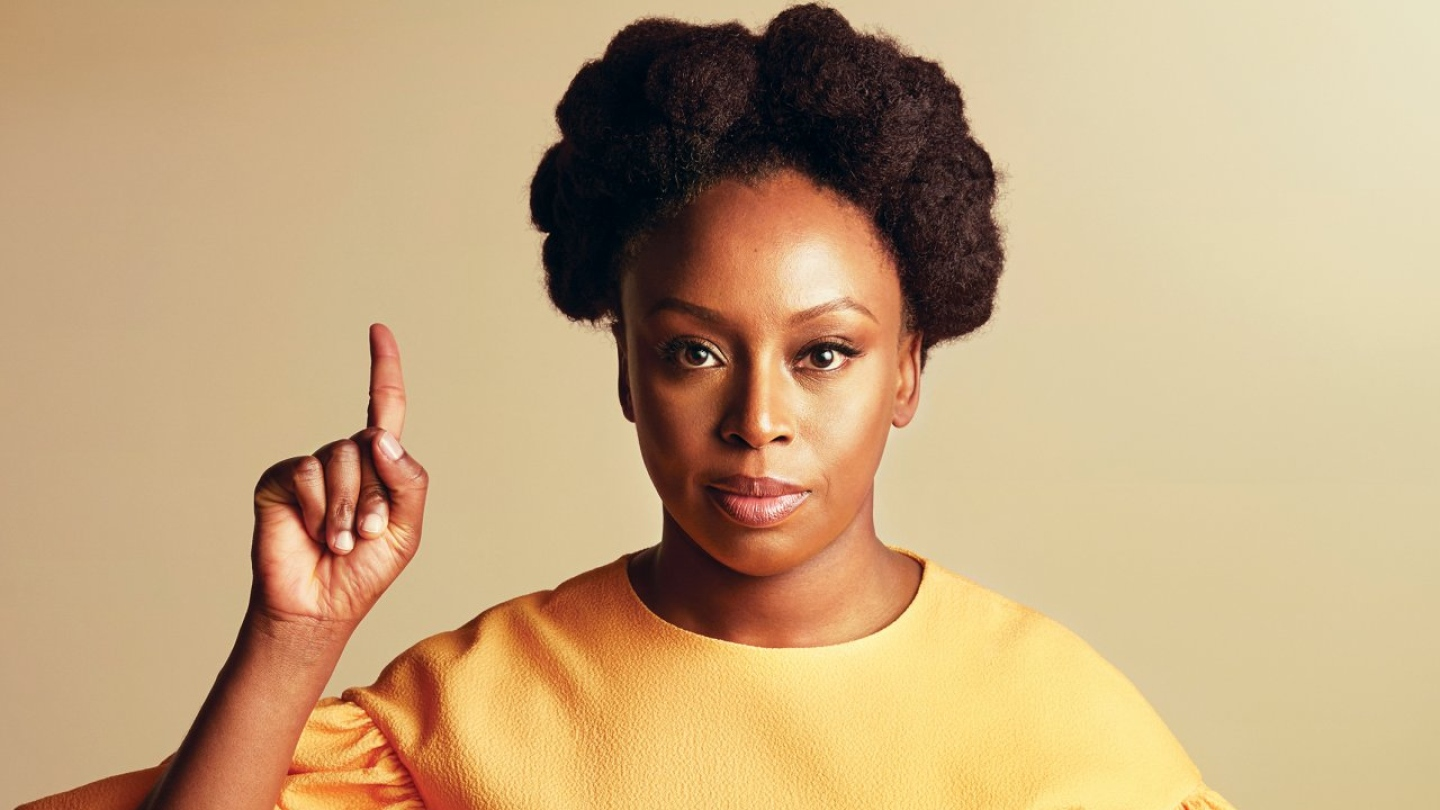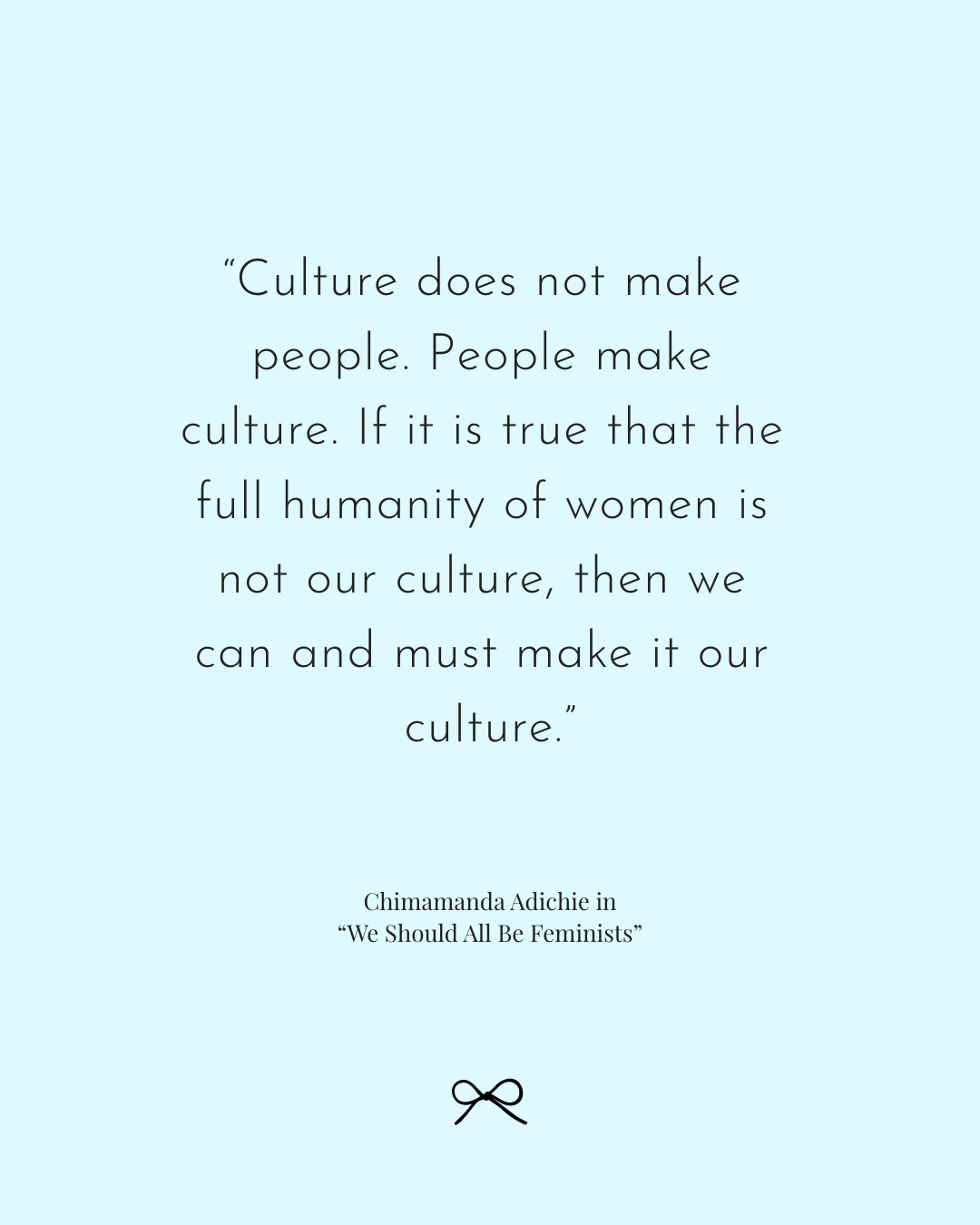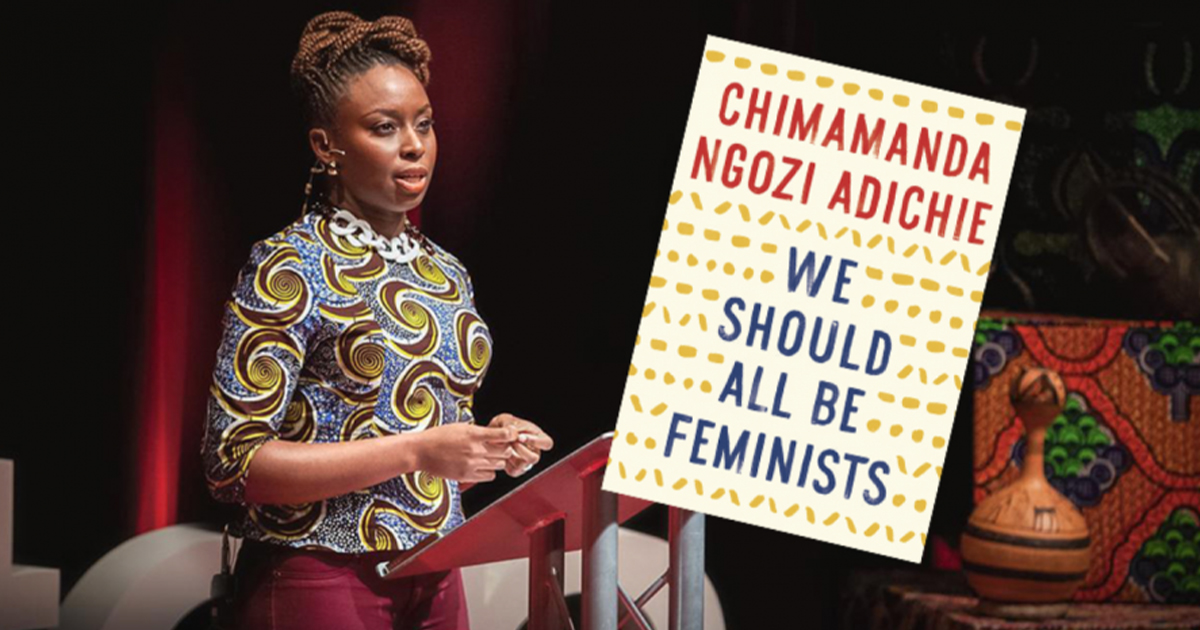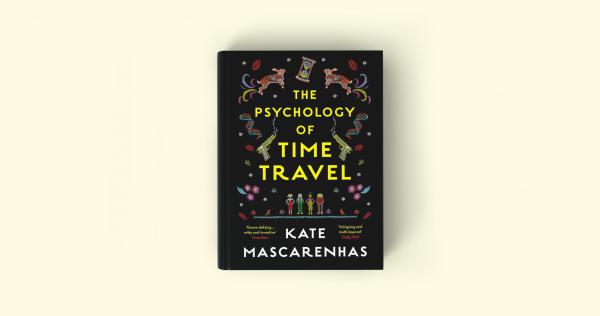Published in 2014, "We Should All Be Feminists" is an adaptation of Chimamanda Ngozi Adichie's famous TED Talk with the same name.
Chimamanda Ngozi Adichie is a Nigerian author whose work resonates worldwide. Her works are translated into more than thirty languages, such is the impact of her message.
As a child, she began writing her own stories and was deeply marked by the absence of black characters in them – her social consciousness formed quite early. Chimamanda studied medicine in Nigeria for a short time and headed to the United States, where she studied Communication and Political Science. From an early age, she had contact with the world of communication, editing The Compass magazine with fellow students, still in Nigeria, and writing a series of articles for university newspapers in the USA. After graduating, she enrolled in a master's degree in Creative Writing from Johns Hopkins University and studied African History at Yale.
Chimamanda is one of the most significant voices of the feminist movement today and continues to fight for women's rights.

From a very young age, Chimamanda used her voice to speak up on important issues such as racism, social injustice and gender equality (or lack thereof). Through her cunning, her sense of humor, and her ability to tell stories, she gave the world some of the most powerful speeches.
In 2012, her performance We Should All Be Feminists traveled the world and soon afterward became a book with the same name. We chose it to be one of our April suggestions at the Josefinas' Book Club for being so pertinent, so fluid, and so fun. This book has become a cultural milestone in what the feminist message is concerned – it deserves every mention.
In this manifest, Chimamanda shares stories from her personal journey, which will demonstrate how intrinsic sexism still is in our society, how people depreciate the feminist discourse, and how vilified the word “feminist” is – the Feminist movement is not yet understood by all, and a lot of people believe that it refers to the superiority of women, but this couldn't be further from the truth.
In We Should All Be Feminists, Chimamanda shows us that sexism is a reality and that accepting its existence is the first step towards eradicating it. Issues such as pay disparity or the “hysteria” associated with feminist women are addressed in a concrete and humorous way. But the message is very serious: there is only one way to fight sexism - by accepting the fact that it exists and educating future generations to put aside the oppressive system in which we live.

We should all be feminists. Because it is still common to have double standards for both sexes; because women are still objectified; because there are still pay gaps; because gender violence is still normalized.
It is with mastery and an ingenious sense of humor that Chimamanda makes us nod in agreement, in a book that we read at no cost. This is an unavoidable work, a speech to make us think, with a message that must and deserves to be disseminated.



